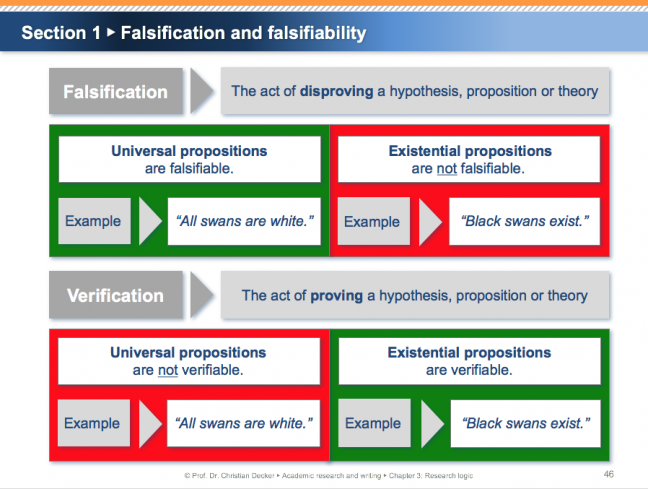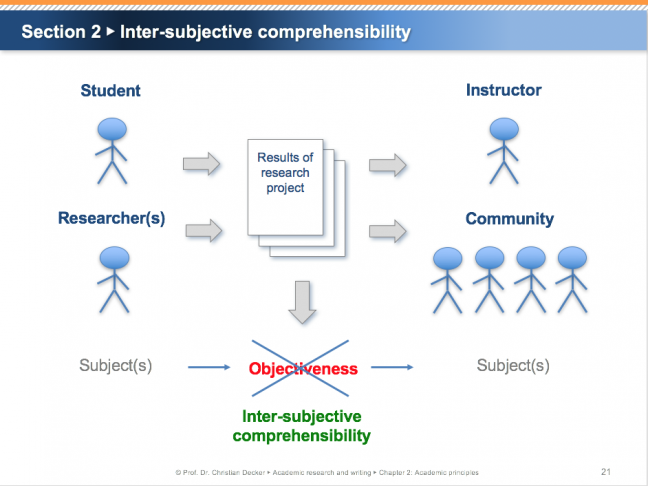The e-learning videos of chapter 3 “Research logic” introduce you to the underlying philosophical or, more precisely, logical aspects of research. The basic understanding of research logic is a necessary foundation for every research project. Induction and deduction are the two major types of reasoning and are frequently applied in research. Both types provide a framework for generating inter-subjectively comprehensible conclusions and projections. The understanding of the basic structure of syllogisms, the ancient Greek sets of logical conclusions as laid out by Aristotle, helps to differentiate between universal and existential propositions as well as affirmative and negative statements. The deductive-nomological model and the inductive statistical model provide techniques to formally describe logical reasoning. These thoughts and ideas help to comprehend the concepts of falsification and falsifiability. Finally, indicator and causal hypotheses are introduced in order to discuss individual limitations of induction and deduction and the benefit of a combination of both types of reasoning.
Link to e-learning videos: Overview of chapter 3

